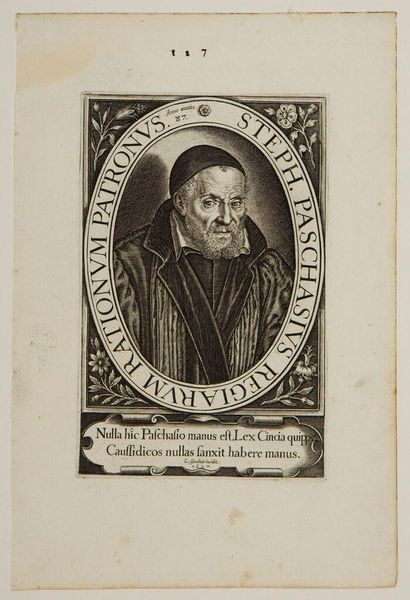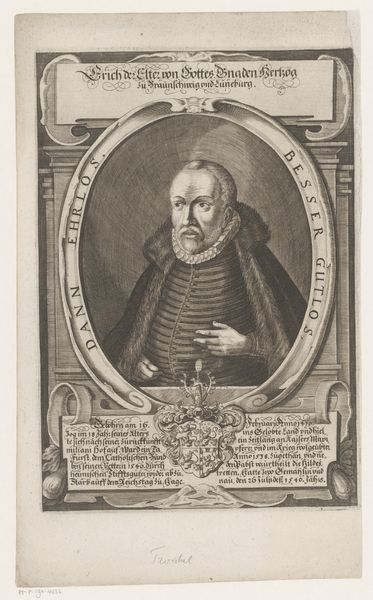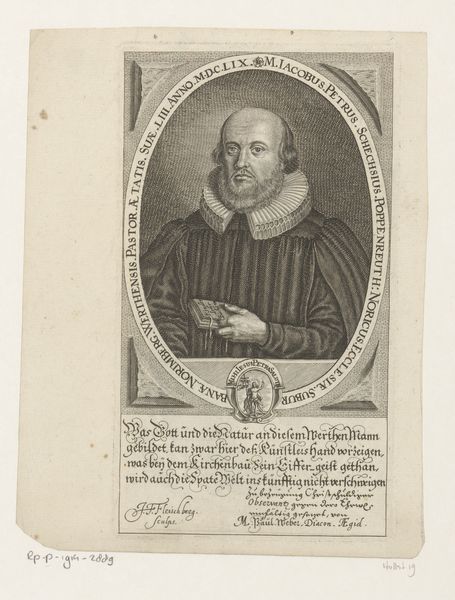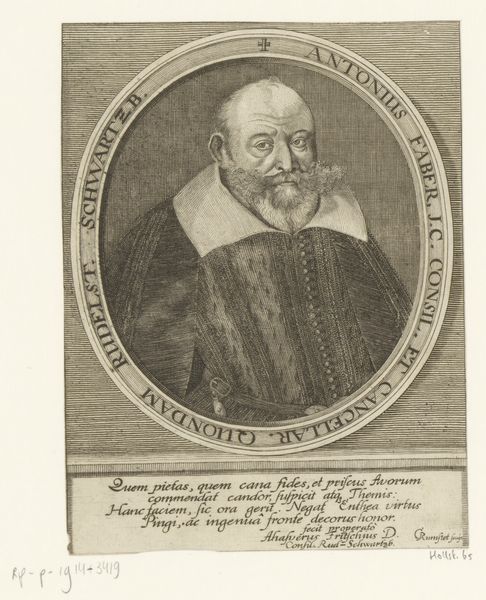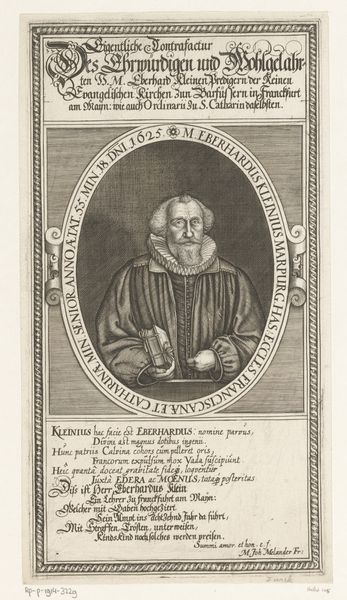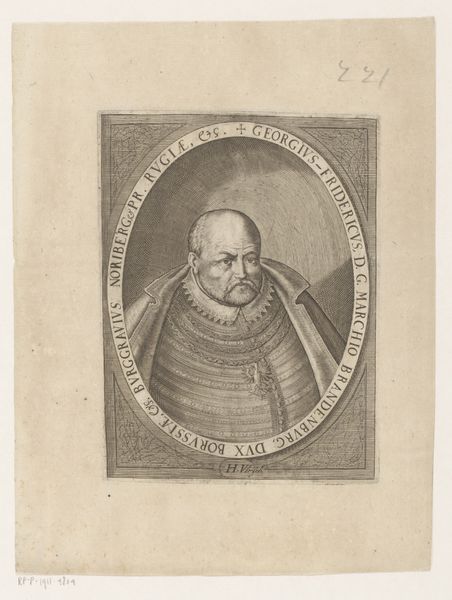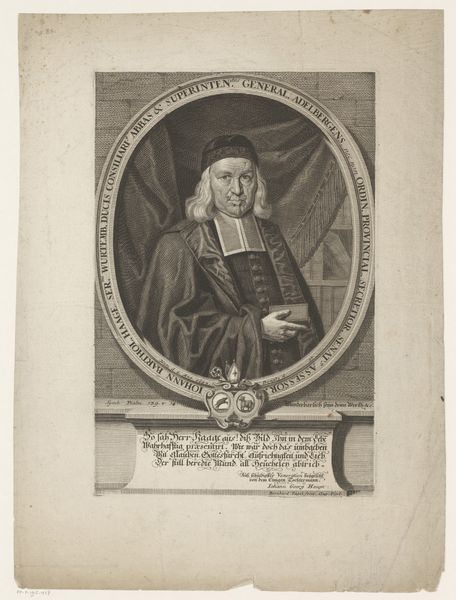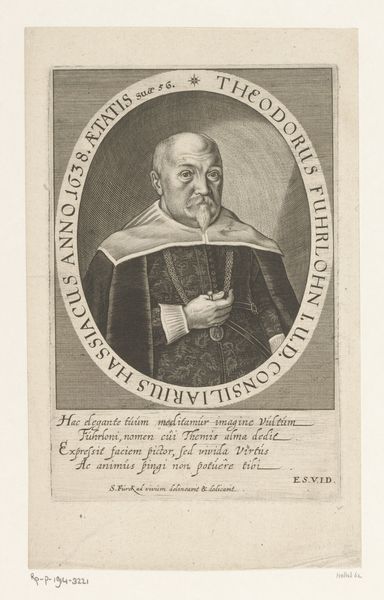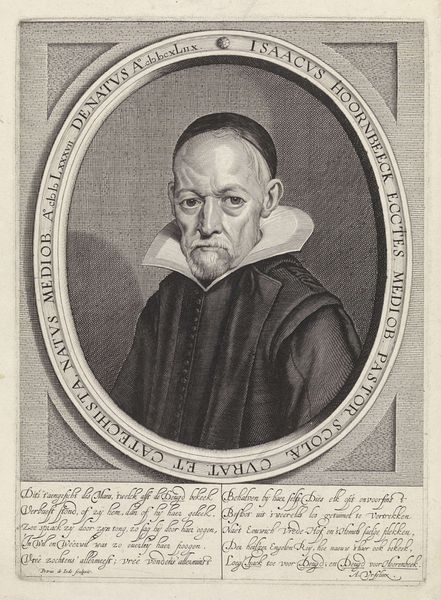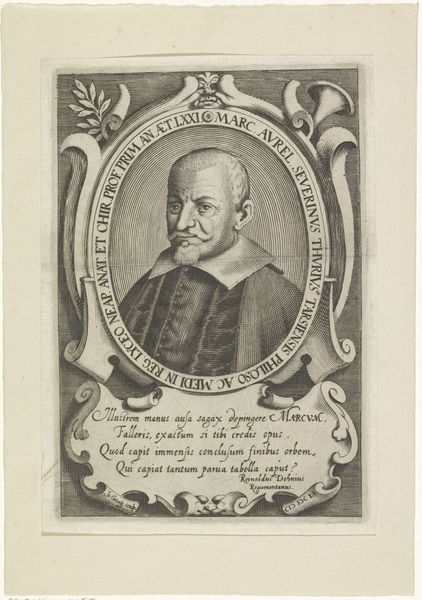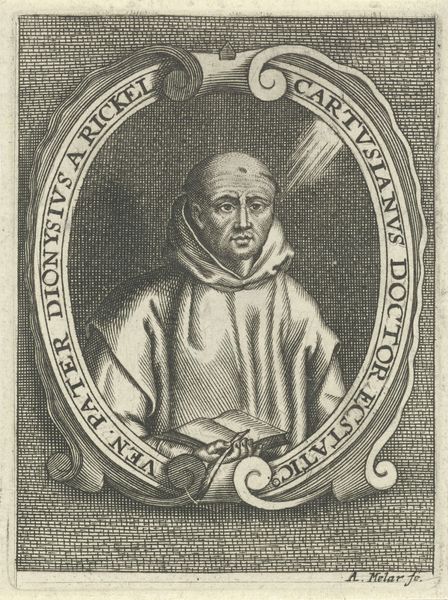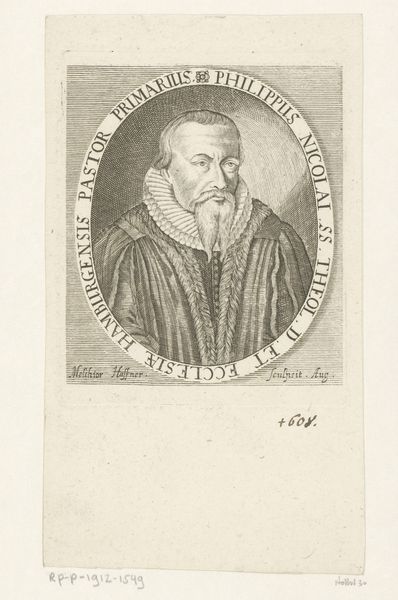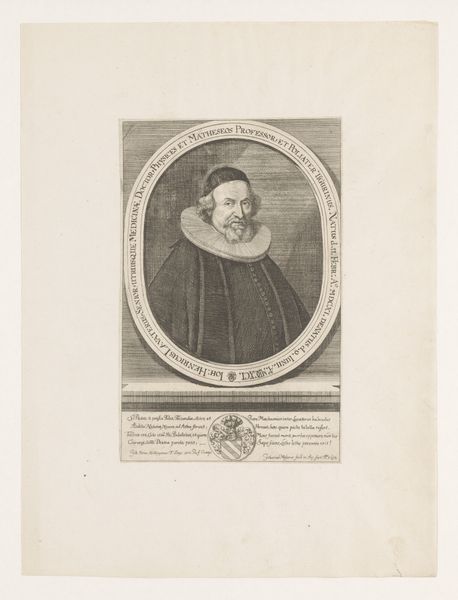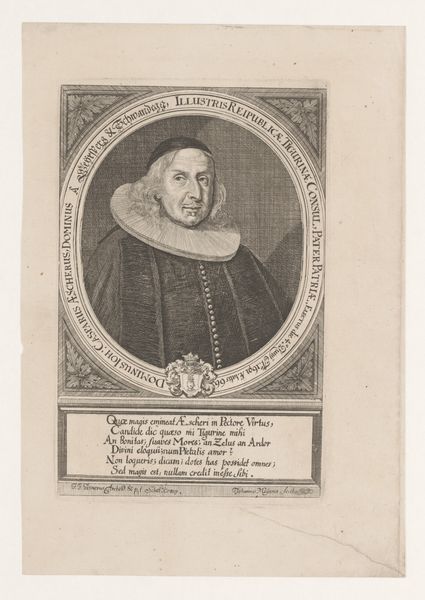
engraving
#
portrait
#
baroque
#
old engraving style
#
history-painting
#
academic-art
#
engraving
Dimensions: height 171 mm, width 130 mm
Copyright: Rijks Museum: Open Domain
This is an engraved portrait of Professor and Abbot Leo Matina, made by Giacomo Piccini. The printmaking process is central to its meaning. Engraving begins with a metal plate, usually copper, into which the design is manually incised using a tool called a burin. The depth and spacing of these lines determine the tones and textures of the final print. Ink is then forced into these grooves, and the surface of the plate is wiped clean, and finally pressed onto paper. The image emerges in reverse of the plate. Engraving was closely linked to the rise of capitalism. It allowed for the mass production and distribution of images, functioning much like social media today. As such, it democratized portraiture to some extent. While a painted portrait would remain a costly status symbol, a print like this one would have allowed for the abbot's image to circulate more widely, a form of self-promotion. This print shows how even traditional media were intertwined with broader economic and social shifts.
Comments
No comments
Be the first to comment and join the conversation on the ultimate creative platform.
